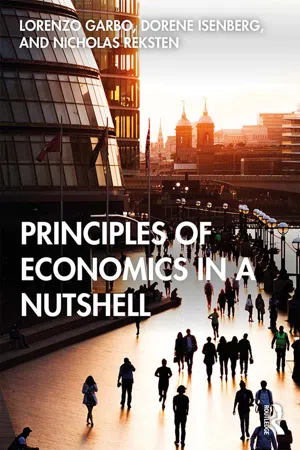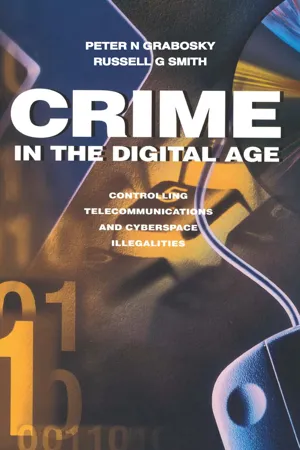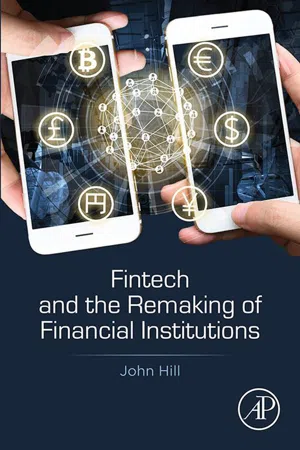E-money
E-money refers to electronic money, which is a digital alternative to physical cash. It is typically stored and transacted electronically, often through mobile devices or online platforms. E-money provides a convenient and efficient way to make payments and conduct financial transactions without the need for physical currency.
3 Key excerpts on "E-money"
- eBook - ePub
- Lorenzo Garbo, Dorene Isenberg, Nicholas Reksten(Authors)
- 2020(Publication Date)
- Routledge(Publisher)
...7 Money changes everything Macroeconomic theory and policy: the money market 7.1 What is money? Working along with the real side of the economy is the monetary system, which enables people to carry out transactions with each other, whether buying or selling, saving or investing, borrowing or lending. At the heart of the monetary system is … money! While common language gives money several connotations, which range from coins and banknotes to wealth, economists have a precise definition of money: money is perfect liquidity. Operationally, it is the stock of assets that can be legally and readily used to make transactions and hold value. The assets which have acted as money have varied over time, and you’ll see different monies in different countries; so, it is important to remember that money changes as the economy changes. In other words, money is what can be used to make and receive payments and store value: in stable times, any commodity generally accepted as means of payment, as a way of settling a debt, can be money; during times of duress, there are fewer acceptable assets. Usually, money is defined by its three fundamental functions (and, as we’ll see later, these functions inform the demand for money). Medium of exchange : it is an asset that people are willing to accept as payment for what they sell because they in turn can use it to pay for something else they want. This function is dependent on liquidity. Store of value : money is a convenient way to store purchasing power and wealth through time. Money as cash maintains its value over time...
- eBook - ePub
Crime in the Digital Age
Controlling Telecommunications and Cyberspace Illegalities
- Russell Smith(Author)
- 2018(Publication Date)
- Routledge(Publisher)
...The precise configuration of electronic money will be hotly contested. On the one hand, there may be those governments which will resist the advent of electronic money, regarding the attendant regulatory problems as intractable. Other governments may seek to monopolise electronic money, and impose a system which would be fully traceable. This would enable law enforcement agencies to track the use of money with an omniscience which has heretofore been unimaginable. The extent to which this could entail a chilling effect on legitimate commerce, as well as illicit commerce, remains to be seen. It could spell the end of financial privacy. Yet another scenario would see private monetary systems develop, beyond the regulatory purview of the state. Private corporations, large and small, would compete for "market share", with security, integrity, and perhaps total anonymity being among their selling points. Fundamentally, this is not new. Governments have not always been the exclusive issuers of currency. 6 As recently as the mid-19th century, individual financial institutions issued their own currencies in the form of banknotes. Negotiability varied, depending upon the perceived integrity of the issuing institutions in question. One may speculate about the future of private electronic currencies: some would thrive and eventually dominate, others would wither and die. But unlike the 19th century, national boundaries may become less relevant to money flows, and the global economy may become truly global. Between these polar extremes lie hybrid systems of electronic commerce, combining some elements of governmental oversight, and some elements of private sector involvement...
- John Hill(Author)
- 2018(Publication Date)
- Academic Press(Publisher)
...Chapter 3 Money A Medium of Exchange, Unit of Account, and Store of Wealth Abstract Money is a medium of exchange, a unit of account, and a store of value. Traditionally, it has been minted from metals, and later printed on paper. More recently, it exists as electronic entries on institutional accounts. It’s called a Dollar, a Pound, a Euro, a Yen. The payments function of money has progressed from hard currency to paper checks to plastic credit and debit cards. And now it enters a new fertile phase of Fintech disruption. Payments innovations such as Apple Pay, M-Pesa, Square, and Venmo are widely used. Cryptocurrencies such as Bitcoin and Ethereum have been developed with expanding ecosystems and ardent supporters. Skeptics are not so sure of the staying power of these digital currencies, but all agree that the underlying distributed ledger technology (blockchain is one type) holds great promise. Keywords Bitcoin; blockchain; distributed ledger technology; Ethereum; ACH; cryptocurrency; Silk Road; Mt. Gox; ICO; DAO; Satoshi Nakamoto; Ripple; Adyen; Apple Pay; Square; Stripe; Venmo; Zelle; Zoop; Alipay In ancient times, gold and silver represented money, as did seashells and other barter commodities. Eight-sided silver coins were minted in Spain in the late 16th century. These “pieces of eight” were widely accepted in Europe and Asia as well as the New World, and were legal tender in the United States until the Coinage Act of 1857. There is some speculation that the dollar sign ($) is derived from design elements on these coins. Dutch silver coins were also circulated in the early US colonies. These coins were called Leeuwendaalder or “lion dollar” and caused the term “dollar” to be freely used to describe currency. For most of its history, US coins and paper currency were backed by silver or gold. Now, however, like most government’s currency, the US dollar is not redeemable for gold. It has no intrinsic value...


